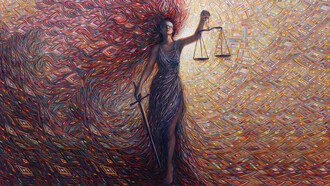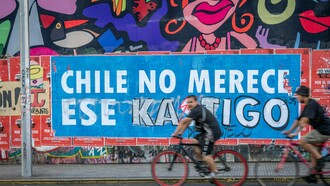2024 is the year that South Africa marks 30 years of democracy. President Cyril Ramaphosa delivered his State of the Nation Address (SONA), and he used this as an opportunity to paint a picture of the impact the current democratic government has had in the lives of ordinary South Africans over the past three decades.
He painted a picture of the life of Tinswalo, a child that would have been born in 1994, at the dawn of democracy. A child born into a world different to that of her parents and all those who came before her. In the words of the president, “The story of the first 30 years of our democracy can be best told through the life of a child called Tintswalo, born at the dawn of freedom in 1994. She grew up in a society governed by a constitution rooted in equality, the rule of law, and affirmation of the inherent dignity of every citizen.”
He went on to outline how she was born into a country where healthcare, housing, basic water, and electricity was provided for the poor by the new government. He further added how she was then able to attend school where her parents didn’t pay school fees, and daily meals were provided for her in addition to the child support grant her parents received to meet her basic needs. Having finished high school, through the assistance of the National Student Financial Aid Scheme (NSFAS), Tintswalo was able to obtain a qualification with which she was able to find employment supported by the state’s employment equity and Black economic empowerment policies put into place to ensure fairness and equality as people of colour now moved into spaces that they were previously excluded from.
The president ended by saying, “With the income she earned, she was able to save, she was able to start a family, to move into a better house, and to live a better life. This is the story of millions of people who have been born since the dawn of our democracy,” President Ramaphosa said.
The story of Tinswalo is a narration of a reality that would exist if the state functioned as it should — if the government was responsible, accountable. The reality of a South African, the reality of all South Africans, is the stark opposite. Hours after the president's address, we were faced with an announcement of stage 4 load-shedding — 24 hours later, we are on stage 6. Social media pages of small businesses are announcing their closures until further notice, as they’re unable to provide goods and services to their customers, impacting the incomes of multiple households at a time. In addition to the load-shedding, we also now battle water shortages.
Tinswalo lives in a different South Africa — one where she is able to walk the well-lit streets without fearing for her life because she is a target of criminals wanting her possessions, or rapists after her body. Her commutes to work using public transportation are safe, convenient and reliable, she was not pressured to purchase a car because safety and reliability of these systems were in question. She also does not carry the burden of Black tax, and she is financially responsible for her needs and for those of the family she has built for herself. She does not have aged parents, unemployed siblings, or niece and nephews who need assistance with everything from shelter, to medication, and even school supplies. Tinswalo is living the “South African dream.”
I am Busisiwe. And I too, am a child of democracy born 8 January 1994. My story is a little different to that of Tinswalo because, thankfully, I was not born into a family that was as directly and heavily dependent on state resources in the form of housing, healthcare, and schooling. However, our daily lives are impacted by the services that we do depend on the state for, whether those services are delivered or not. Including electricity, water, quality roads, and refuse removal.
Like Tinswalo, my undergraduate studies were funded by NSFAS, which provided additional funding for food and transport. My honours degree was funded by the NRF (the National Research Foundation). In a country with alarmingly high levels of unemployment, having a qualification or even a postgraduate degree does not guarantee that one will find employment. Many who do, do so after an expensive and extensive search and end up settling for a job that’ll put food on the table — not necessarily what they’re qualified for. I was able to secure my first job during my Masters degree.
Tinswalo has angered many South Africans as their daily reality is far removed from the pretty picture our leader has painted with many saying that all it did was highlight how out of touch with reality our President and his government officials really are. This young lady lives in a crime-less country, where the public services are efficient and reliable, where service delivery is a promise that is kept, where the electricity supply is consistent, and where Black tax is not a burden that must be carried. This young lady lives in the South Africa that many dreamt of, bled for, and died for. A South Africa that we, as South Africans, went to the polls on May 29 to vote for. Now we watch as our elected representatives work to piece together a new government for us — one that will hopefully work for us, it’s people.















